Interview to Mikel Alvariño co-writer of The Birthday
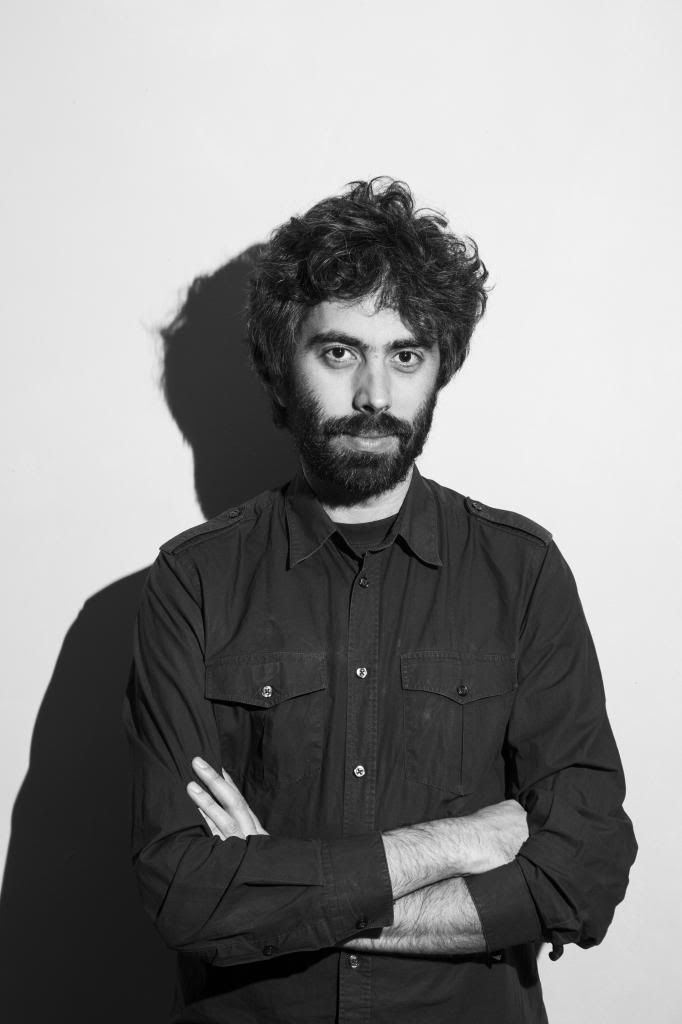
How did you start working for the cinema industry?
My first professional experience was as an extra in Ridley Scott’s 1492: Conquest of Paradise. It could have been only an anecdote, but that was the moment in which I realized that that was what I wanted to do for a living. 15 years old, dressed with rags inside the cloister of the monastery where we were filming, in winter and wearing hot water bottles on the feet when they were not seen in the shot, I fought against the magic of the cinema, face to face, watching it from its inside. Ridley Scot was a magician whose tricks I could spy behind the scenes. Until he caught me in the video tap next to him, looking at a shot and he puffed smoke from his cigar in my face. And I was very happy indeed.
So I was sure I wanted to make movies. But, how does someone start this? A cinema school seemed a good idea, so I signed in a cinema direction course in a school in Madrid. So, since then, my life started to be around this.
Meeting people with the same interests, worries and ambitions as mine was the key for me starting to feel cinema as a profession. And, mainly, having always a plan: a screenplay to write, a music video, a project to be taken to production companies… All full of patience.
The curious thing is that my first opportunity came as a writer for TV series. I had never taken being a writer into consideration before. I wrote because I liked it, but I never thought that could be my job.
After many years trying to reach my biggest ambition: making movies, I was lucky enough when one of the projects I was part of, went ahead: The Birthday.
How was The Birthday born?
Eugenio had filmed a short: Fade, which called the attention of many producers. It was a spectacular visually speaking short and it called one’s attention a lot. His talent as a director was obvious. A producer, Ibon Cormenzana, watched it in a fest and went for Eugenio to produce him a movie.
Basically, Ibon wanted the perfect project to be Eugenio first feature film. Eugenio and I had different stories, we had written some screenplays together, but nothing that fitted in what Ibon could produce or in what Eugenio wanted to do in that moment.
Fade por confidencial
So we decided to set up a rule for the story we were about to tell, that helped the production, and this one was that everything had to happen in the same location. Since then, we got excited about making it in real time and from the exclusive point of view of the main character. Eugenio as the director, determined that Norman Forrester point of view appeared in every shot. Another challenge as a director. It was the same perspective, close-up. He was very strict with this, because in every shot, even if it was the suit sleeve out of focus, there it was Cory Feldman. So it is not only Norman Forrester in every shot, but also Cory Feldman.
And that is the way the idea of the hotel, romantic comedy, the craziest part in John Landis’ s Animal House, Blake Edwards’s The Party style of two simultaneous parties, the fantastic genre part…. started. We put inside all the things we like.
Eugenio and I knew each other perfectly well, we were and we are great friends and we work at ease together. We had talked a lot before about the many conventions that there are in cinema and that they are not often broken. So we wanted to do something special with things all people knew.
Actually, The Birthday is a container in which nothing was restrained and we were so lucky to finish it. To make the movie. With all the consequences, of course. It is a really crazy movie and probably, unbalanced, in which all our excitement for making cinema can be seen. But, if it hadn’t been like that and if we hadn’t wanted to do it like that, probably it wouldn’t be the special movie I think it is.
Was there any specific influence?
Actually, all movies we had seen, or better said, some kind of cinema that we liked and we grew up with. I had watched any kind, I love all kind of cinema, but the bear club (Spielberg, Lucas and company), Amblin, John Hughes and all the movies our generation grew up with and that opened a new way of commercial cinema, they are in our imagery. All that lead us to place our movie in USA, in the 80s and that the main star was an icon from those times and cinema, as Corey Feldman is.
Obviously, there was a factor that fascinated me then: filming in English. That the movie looked American. That obsession and those prejudices about not looking like a Spanish movie were really big in those times. Luckily this has changed. I think Spanish cinema is better, we are used to the bill being bigger and the genres are more opened, we like any kind of story filming it in Spanish too. But then it hadn’t changed yet. It was in the process of changing, but not completely changed.
Another important thing is that, apart from having so clear references, we didn’t want to pay them tribute. We wanted to do something new with the 80s cinema elements. Many people expected a tribute to the 80s while watching the film, and they were really surprised. It was never our intention. Yes, we were fed from little tributes, there are some movie sentences we like, signs… but no more than an anecdote. In that sense we were very ambitious and that could have been something against us. But we were really happy. “Why things, even though we like them so much, are always told in the same way? Let’s do it in another way! Let’s see parts of the story never shown before!”
The perfect example is the main couple. On one hand, we have the classic loser from the 80s teenager movies, Norman Forrester and on the other hand, Alison Fulton, the beautiful and charismatic cheerleader. And, at the beginning of the film they are a couple who had been going our for a while. How could these two people from so different high school stratum be together? That’s the story we have been told thousands of times! Why don’t we tell the story of the couple time after? Do they really have a future? That is the kind of challenge of showing the other side of the conventions that stimulated us so much.
Another decision was that Norman’s constant point of view lead us meant that he was not always were the main plot or important events were taking place. So there are gaps in the story that we knew how to fill, but weren’t said in the movie. Another radical decision we loved to take to its logical conclusion.
We had a great time planning the story and writing it. Real time was another aspect we wanted to take seriously and we wanted to be really meticulous with it. We wanted all the adventure, developed inside Norman’s world, to be lived from his eyes, literally. There are things he sees, observes, and things he misses, because he cannot be in all places at the same time.
We also designed the spectrum of several characters, even though they weren’t even named or were main ones. There were in scene during the whole performance being guests of any of the two parties, cult members, para-scientists… and, therefore they have their story. We had a great time making up not important situations but that were happening. The characters were alive, they were somebody, and we wanted them to be in the film even if they were in the background.
All that made us write a screenplay of about 400 pages. Obviously, we put apart many characters, situations and scenes till reaching the final version of it. But we enjoyed the creative process so much.
You worked there with your brothers? What was the experience like?
We have known each other for our whole live, sure, so working together in something we like is like home game. A privilege. Among brothers there are no filters, so we understand each other quickly.
Javi is the artistic director – and also production designer, that is not the same- and Jorge photographer –even though he is starting working as photography director. I have worked with them in all my shorts as a director, both in their natural functions and actors, editors, photography director… and in many of my works as screenplay writer, as The Birthday.
Also, we have a production company called Mafiumakers Producciones in which we play mad with no aim but having fun doing what ever we want with our own humour codes.
For both of them it was a very special movie professionally speaking and it launched their fabulous careers.
Have you worked with Eugenio Mira again?
Eugenio and I have been friends for almost 20 years. WOW! Believe it or not! We met at Septima Ars, Madrid school of cinema where we both were studying direction. We’ve got on well since the beginning and soon we started working together. Eugenio has always been of those who rouse the masses. His love for the cinema, his illusion to make it and his ambition to do it as he wants is contagious and inspiring. He has such a big amount of energy that can fill you without strain, and that makes you better at what you do. As a friend and filmmaker it’s great having someone like him.
Since the beginning and having only made the school short, we were ambitious. Not a year after finishing school, we wanted to make out first movie. We wrote a feature film together with another friend, the director Javier Asenjo, that we wanted to be directed by the three of us. We went farther than it was expected. We started moving it without hesitation in the production companies we could, and one of the big ones paid attention to us. We had our heads in the clouds.
That was the first contact we had with the currency of everyday filming life: you project is interesting, everything is “yes, go ahead, we want to do it”.. but you realise days go by, weeks, months… and nothing happens. Till you see nothing would happen. It was an important lesson for the future.
Since then, Eugenio and I develop a lot of projects together. Occasionally with someone else, but mainly, only the two of us. We have some stories in our pockets. I wish some day one of them would happen.
Every time we work together we have a tendency to go into the most bizarre things. It is like the kind of things happening when we work together tends to The Birthday crazy and marvellous code. We have tried not to, but clearly it is hard for us. Or it is for Eugenio with me. Or I with him. The thing is that we have tried and we cannot go into a more conventional way. I suppose that is why working together is so crazy, funny and intense. After ten years I think it is time to try again. I wish it would happen soon.
Tell us a little about Jack Taylor, a cult Spanish Horror actor.
It’s a very nice person. I met him in Barcelona when we were getting ready for the movie. Since the beginning he won us all and he became a kind of father, grandfather and idol. He is a cinematographic animal, living cinema history. You start thinking in all the things he has done and you realise he covers big part of the history of cinema. I remember he told us that one of his first works in USA, before coming to Spain, was on Jack Benny Show, a TV show. Jack Benny was a very famous comedian, main star in Lubitsch’s To be or not to be, among others. The thing is that in a show he worked as an actor, the special guest was none other than Marilyn Monroe. Jack worked with Marilyn!
And, apart from all the big American productions he made in Spain, he is a legend in our country. But my admiration towards him it is not only because of him as and actor but also because of the great person he is in and out of the set. Time has passed since we last saw each other, but I am sure next time we do we will feel time has not passed. That’s what happens with friends.
Any anecdote from the shooting?
If I feel The Birthday is also a movie of mine it is not only for having written it with Eugenio, the director. It is also because the story was created by Eugenio and me together since the beginning as the opportunity of making a movie at last. It is his movie as a director, but our movie as writers. It is important because I put a lot of myself in it too.
That is why, Eugenio wanted me to be in the shooting next to him. We said something like I was his Mateo Gil (Amenabar’s co-writer and assistant in his first movies). Eugenio wanted to keep the spirit of the film where he couldn’t be, and that is where there was me. Being the assistant director, I could, in a way, draw the movie background action so all the plots and layers of the story that were happening at the same time, were present. May details of the plot of the sect before it is discovered as a sect, or characters whose actions we wanted to go beyond what extras are, were designed by me.
In fact, that is what I explained to the extras. In the movie they would be characters with their evolution, not just plain extras. Some of them were characters we had thought about before, and others I improvised them. But one was whoknowswho from Philadelphia, other the cousin who has been always in love with Alison…
The funny thing is that, apart from being the writer and assistant director, I also had a small role. I played Janusz, the Polish bass player of the band that is playing in the party. Ray-ban glasses, long wig and 80s style real hair moustache. So when I was going to talk to the actors / extras in order to explain them what they had to do, they did not recognise me and did not understand why this other extra was telling them how to act in the shot. It was very funny.
It also happened that having an icon from our childhood as Corey Feldman made us control ourselves in order not to look lime amateurs letting us go by our mythomania. But there were times when we lost control.
There is a video where Eugenio and I, with the confidence we had with Corey, decided to be lead by the myth side of our star. See video:
It was a quiet and relaxing moment, and suddenly I found myself humming the main song from The Goonies soundtrack. He started laughing and started signing with me. Naturally we started talking about that cult movie. Joking I imitated him saying sentences his character: Mouth said in Spanish: “La marihuana está en el primer cajón, la cocaína en el segundo…”, etc. And he remembered it perfectly well. And then I told him how we dub movies in Spain: the Hispanic servant speaks Italian, so he would translate all to Italian to her. So those mythical Spanish sentences are in Italian for us. He was very surprised and he started saying the sentences I was saying in Italian. It was Corey Feldman imitating his dubber in The Goonies. It was very crazy and funny.
How do you see the movie 10 years after?
I think it is kind of timeless, which makes it not to get old. It may be because it is not even a product of its time. Time without watching it has passed, but I have always enjoyed it a lot. I love to discover things in it that I have forgotten about all of our work, from Eugenio to the actors, without forgetting the screenplay. We were really radical and I love it was like that!
On the other hand, due to different reasons, it is a movie few people know. It belongs to what is called invisible cinema. The good side of this is that is a movie to discover for most of the audience. And that is something a little exciting.
Luckily, none has stopped talking about it. Every year I read something on boards or cinema sites, and, what it is even better, each time I read better things. So the feeling is that the movie grows with time.
The truth is that sometimes I thought: “Shit! That movie we were about to make was so cool!”. And then I realise: “Hey! We made it!”
What are your nowadays projects?
I am always working on different things at the same time, because to work out something both for cinema and TV, you have to be on different sides in order to have something done.
The latest I have done is a short called “Óscar desafinado”. Now we are in postproduction. It is a project I am very excited about because it is my most ambitious work as a director so far and I consider it as a little feature film. Let’s say, like a miniature demo of the kind of movie I would like to do. I wish everything would go well and it would be the step that leads me to features. I do not know what will happen but I know it is the moment for making it. And see, things are quite hard now…. But I am born optimist.
Last question: what Spanish Horror movie has influenced you most?
As I said before, I am more influenced by American genre cinema than Spanish. I watched some Spanish Horror movies but they didn’t call my attention in those times in which you are stepped in cinema during adolescence. A pity, because when I started watching that kind of cinema I regretted I had gotten into it so late. Both movies by Narciso Ibañez Serrador, La Residencia (The House that Screamed) and ¿Quién puede matar a un niño? (Who can Kill a Child?), are great. I do not think they have something to envy to world cult horror classics. I love José Ramón Larraz’s Vampyres or Jorge Grau’s No profanar el sueño de los muertos (The Living Dead at Manchester Morgue).

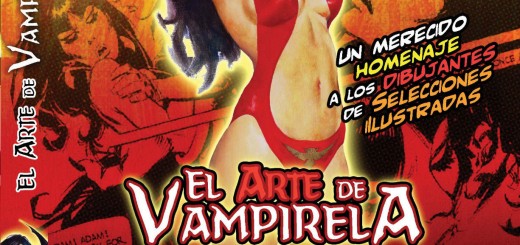
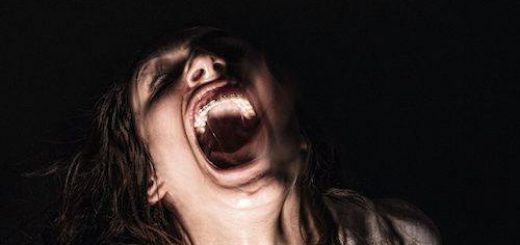
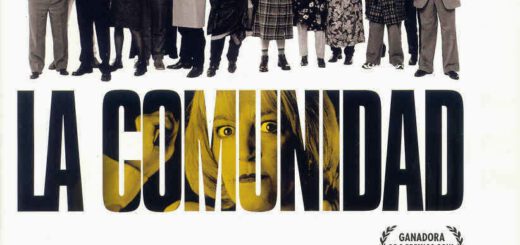

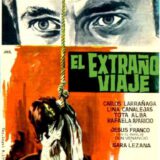
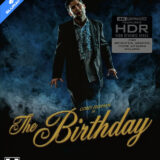
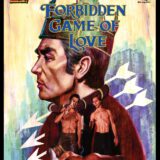
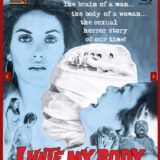
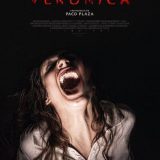
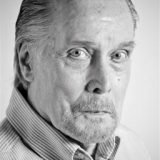
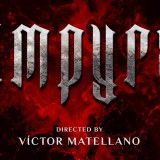
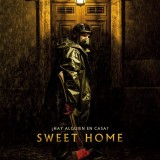
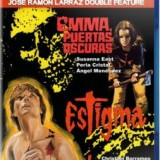
2 Responses
[…] Click here! […]
[…] A written interview with Mikel Alvariño […]